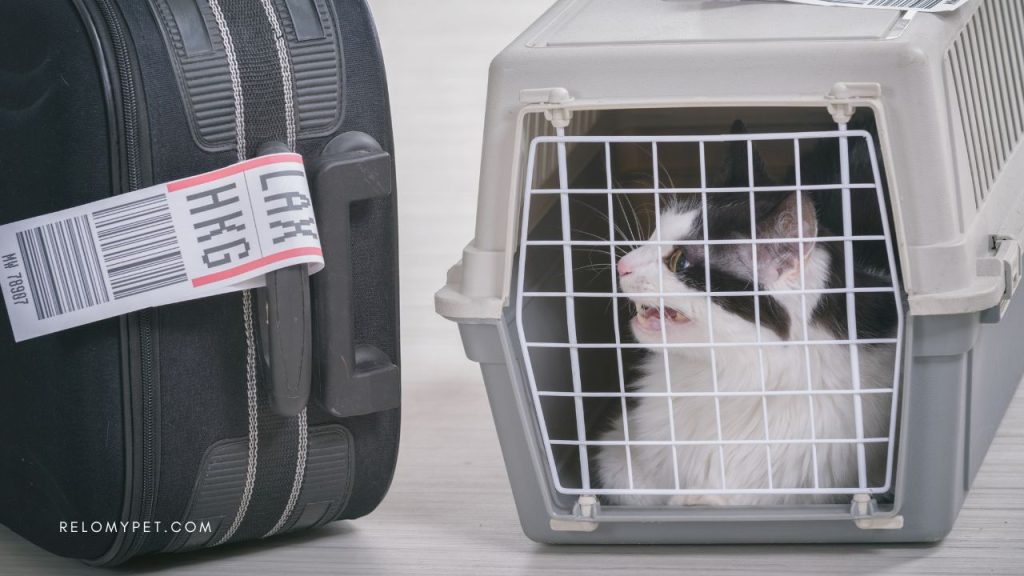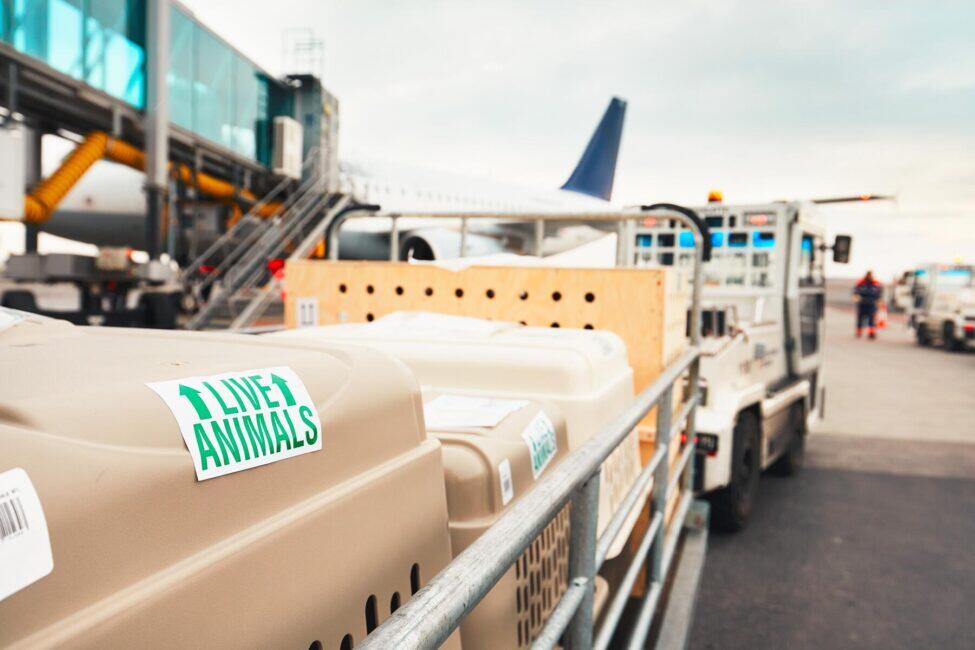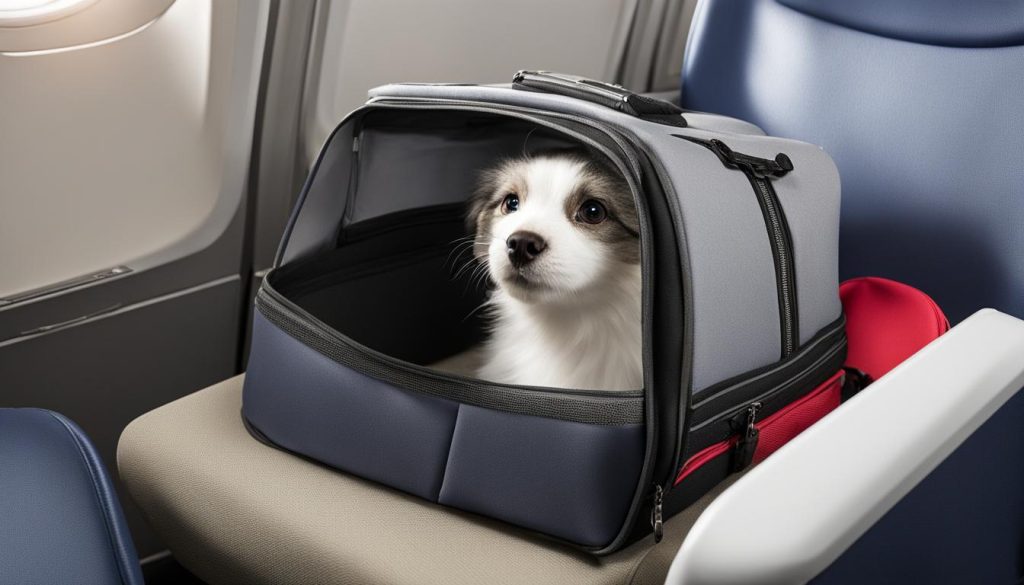Regulations for Pet Travel by Air to China
Traveling to China with your beloved pet requires careful planning and adherence to specific regulations, which have been updated over time. As of May 1st, 2019, China implemented new, more relaxed policies regarding pet entry, making the process smoother for pet owners. However, strict requirements still apply to ensure the health and safety of both animals and the public.
Here’s a comprehensive guide to the regulations for transporting pets by air to China:
Key Requirements & Documents:
- One Pet Per Passenger:
Each passenger is generally allowed to bring one pet only (either a dog or a cat). This limit is strictly enforced.
- Microchip:
Your pet must have a microchip (ISO 11784/11785 compliant) implanted. This microchip must be readable by a standard scanner. Ensure the microchip number is recorded accurately on all health certificates and vaccination records.
- Vaccinations:
- Rabies Vaccination:
Your pet must be vaccinated against rabies between 30 days and one year prior to entry into China. The vaccine must be an inactivated vaccine.
-
- Other Vaccinations:
While not always explicitly required for entry, it is highly recommended that your pet is up-to-date on all other core vaccinations (e.g., Canine Distemper, Parvovirus for dogs; Feline Panleukopenia for cats) as advised by your veterinarian.
- Rabies Antibody Titer Test (for non-designated countries/regions):
- “Designated Countries/Regions”:
If you are traveling from one of the 19 designated countries/regions, which include places like New Zealand, Australia, Fiji, Cyprus, Iceland, Ireland, UK, Portugal, Sweden, Switzerland, Japan, Singapore, Hong Kong, Macau, etc., your pet is exempt from the rabies antibody titer test if all other conditions are met.
-
- “Non-Designated Countries/Regions”:
If you are traveling from a country not on the designated list, your pet must undergo a rabies antibody titer test (FAVN test or RFFIT test) at an approved laboratory. The test result must show an antibody level of 0.5 IU/ml or higher. The blood sample for this test must be drawn at least 30 days after the rabies vaccination and within the validity period of the vaccine (usually one year from the vaccination date). The test results are valid for one year from the sampling date.

- Official Health Certificate:
- Your pet must have an Official Health Certificate issued by the competent veterinary authority of the country of origin (e.g., by the Department of Agriculture in your country).
- This certificate must state that your pet is healthy, free from infectious diseases, and has met all vaccination requirements, including the microchip number and rabies vaccination details.
- The certificate must be issued within a specific timeframe (usually 14 days) prior to your pet’s arrival in China.
- Quarantine (Reduced or Waived for Eligible Pets):
- Pets from Designated Countries/Regions (with all requirements met):
Pets arriving from the 19 designated countries/regions that meet all entry requirements (microchip, valid rabies vaccination, health certificate) can enter China without undergoing quarantine. They will undergo a quick on-site inspection.
-
- Pets from Non-Designated Countries/Regions (with all requirements met and negative titer test):
Pets from non-designated countries that have a valid rabies antibody titer test result (≥ 0.5 IU/ml) and meet all other requirements can also enter China without undergoing quarantine at the port of entry.
-
- Pets Not Meeting Requirements or Arriving from High-Risk Countries:
If your pet does not meet all the above requirements, or if they are from a country with a high incidence of rabies and without a valid titer test, they may be subject to a 30-day quarantine at a designated quarantine facility at the port of entry.
Entry Ports for Pets (Specific Ports for Non-Quarantine Entry):
To qualify for non-quarantine entry, pets generally must arrive at one of the following designated ports with inspection facilities:
- Beijing Capital International Airport (PEK)
- Shanghai Hongqiao International Airport (SHA)
- Shanghai Pudong International Airport (PVG)
- Urumqi Diwopu International Airport (URC)
- Various ports in Guangzhou (Baiyun International Airport, Railway Station, Nansha Port, etc.)
- Chengdu Shuangliu International Airport (CTU)
- Chongqing Jiangbei International Airport (CKG)
- Hangzhou Xiaoshan International Airport (HGH)
- Xiamen Gaoqi International Airport (XMN)
- Qingdao Liuting International Airport (TAO)
- Tianjin Binhai International Airport (TSN)
It is crucial to confirm the specific port requirements with your chosen airline and a pet relocation specialist, as regulations can sometimes be subject to local interpretation or change.
Important Considerations:
- Airline Regulations:
Each airline has its own specific rules regarding pet travel, including crate size, breed restrictions, temperature policies, and booking procedures. Always check with your airline well in advance. Some airlines may only allow pets as cargo, while others permit them in the cabin (for small pets) or as checked baggage.
- Pet Relocation Services:
Given the complexities of international pet travel, especially to China, it is highly recommended to use a professional pet relocation service. They can handle all the paperwork, coordinate with veterinarians and authorities, and ensure a smooth journey for your pet.
- Timing:
Start the process well in advance (ideally 3-6 months) before your planned travel date, especially if a rabies antibody titer test is required.
- Breed Restrictions:
Be aware that some airlines or countries may have breed-specific restrictions, particularly for brachycephalic (short-nosed) breeds due to respiratory risks during air travel.
- Customs Declaration:
You must declare your pet upon arrival at Chinese customs.
Navigating the regulations for pet travel to China can be challenging, but with thorough preparation and professional guidance, you can ensure your beloved companion arrives safely and smoothly. Always confirm the latest regulations with the Chinese Embassy or Consulate in your country, or consult a reputable pet relocation specialist.

Read more:
- Conseils essentiels pour camper avec son animal de compagnie en été
- Service rapide et fiable de transport d’animaux de compagnie de Hanoï vers la France














